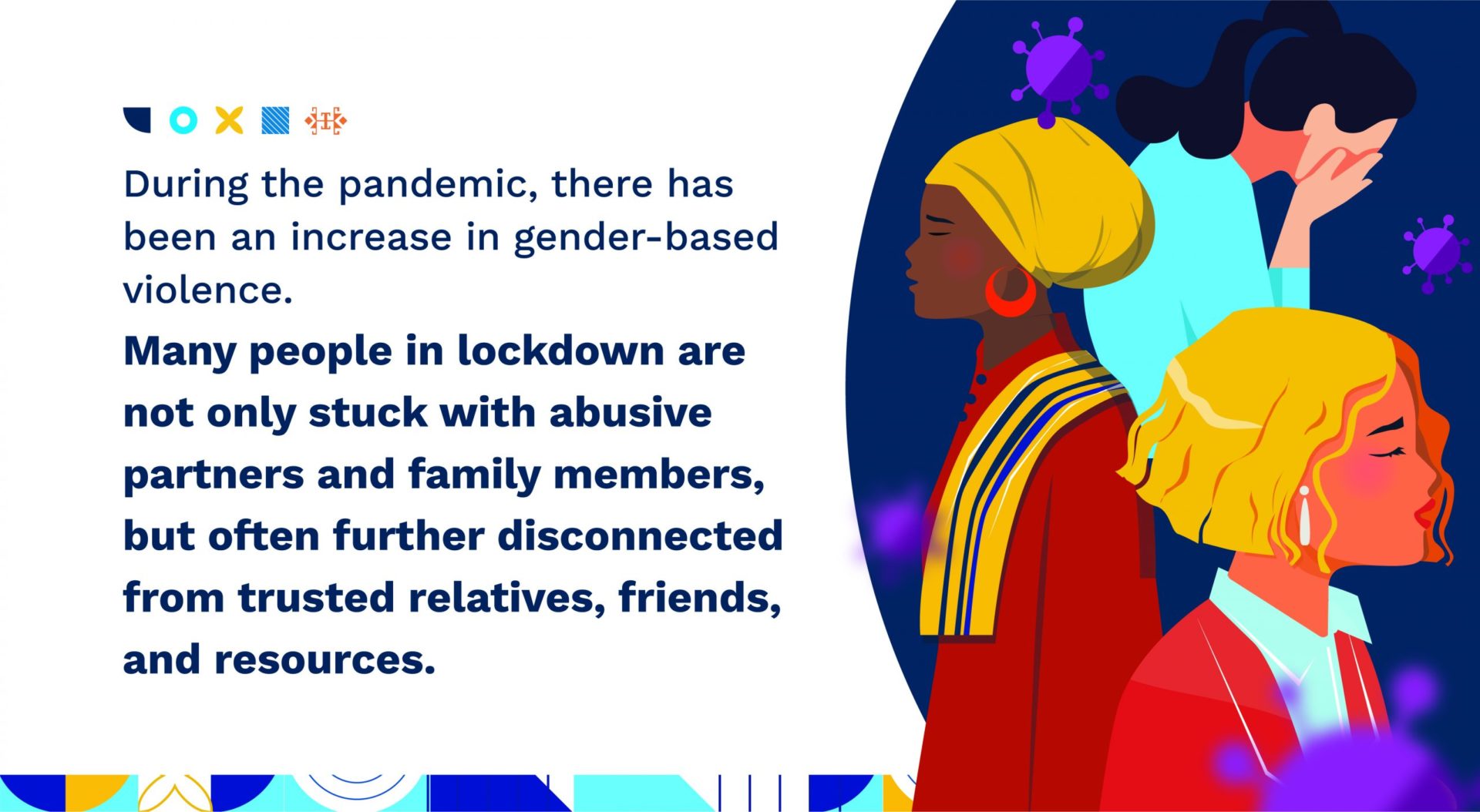During the pandemic, there has been an increase in gender-based violence as people have been required to stay home and have been further away from public view.
Many people in lockdown are not only stuck with abusive partners and family members, but often further disconnected from trusted relatives, friends, and resources.
UN Women began sharing information about a Shadow Pandemic because of the overwhelming increase in violence against girls and women.
Women who are refugees or displaced individuals are even more vulnerable because of precarious living situations and reduced or limited access to survivor services that can help them.
A study by UN Women’s Regional Office for Asia and the Pacific (ROAP) found that compared to men, women:
- Have less access to COVID-19 related resources.
- Experience longer wait times when seeking medical care.
- Less likely to have health insurance in countries without universal healthcare.
- Responsible for keeping up with the increasing amount of unpaid domestic and care work, including but not limited to: cleaning, cooking, and serving meals.
Women are being disproportionately impacted by COVID-19 in nearly all aspects of life. COVID-19 has made already limited options for victims of abuse, even more scarce.
Some women are afraid to leave their homes and move in with a relative or friend due to the virus. Some countries have reallocated resources usually designated for efforts at protecting women from violence, and put them towards COVID-19 response efforts.
Sources:
“The Shadow Pandemic: Violence against women during COVID-19.” UN Women.
“Gender-based violence on the rise during lockdowns.” UNHCR. November 25, 2020.

